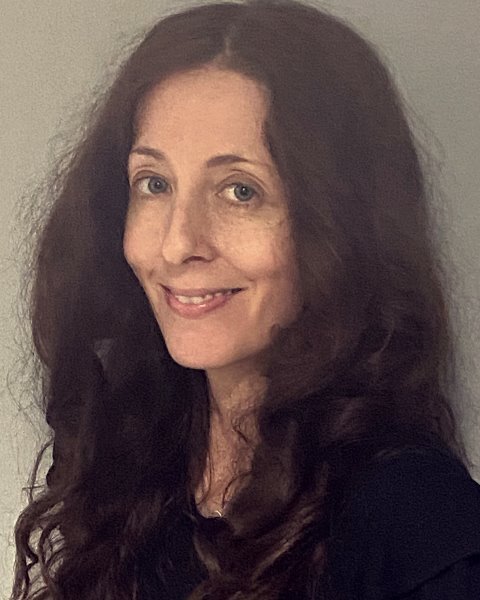
eAudiology
Early Hearing Detection and Intervention (EHDI): How Can Audiologists Support EHDI Goals?
-
Register
- Non-member - $60
- Member - $35
- Student - $10
AAA 2021 Virtual: Early Hearing Detection and Intervention (EHDI): How Can Audiologists Support EHDI Goals?
Presented at AAA 2021 Virtual
Presenter(s): Danielle D. Mercer, AuD
Duration: 30 minutes
CEUs: 0.05 AAA
Instructional Level: Fundamental
Program Focus: Knowledge
Learning Outcomes: Upon completion, each participant in the eAudiology Web Seminar will be able to:
- Describe the 1-3-6 EHDI goals.
- Describe specific actions audiologists can take to bolster achievement of EHDI benchmarks.
- Describe sources of loss to follow-up in newborn hearing screening programs, and explain why children referred for otologic evaluation pose a particular challenge to completion of EHDI goals.
Abstract: Timely follow-up testing subsequent to a referred newborn hearing screening allows for early identification of congenital hearing loss. State EHDI programs promote referral and enrollment into early intervention for infants who are deaf or hard of hearing. Despite these efforts, late diagnoses, incomplete diagnoses, and lost to follow-up cases persist. This module will discuss ways audiologists can support EHDI 1-3-6 goals and promote opportunities for language development for children who are deaf or hard of hearing.
Summary: The prevalence of congenital hearing loss is 2 to 3 per 1,000 infants. Due to the implementation of universal newborn hearing screening programs, many children who are deaf or hard of hearing are being identified in infancy, compared to an average age of 2 to 3 years a generation ago. Research demonstrates better outcomes for children identified and enrolled into early intervention before 6 months of age. These early intervention goals are incorporated into the national 1-3-6 EHDI benchmarks: screen before 1 month of age, diagnose before 3 months of age, and enroll into early intervention before 6 months of age. Despite the efforts of state EHDI programs, approximately 25% of infants who do not pass their newborn hearing screening become lost to follow-up before receiving a final diagnosis, and less than half of those not passing the newborn hearing screening receive a diagnosis before 3 months of age. As the primary health care professional in the diagnosis and treatment of children who are deaf and hard of hearing, audiologists can support EHDI goals and optimize outcomes for these children in many ways. Through timely reporting of all follow-up visits of children birth to 5 years of age who do not pass newborn hearing screening, EHDI staff are able to run their programs more effectively and ensure a smooth referral process. In addition, audiologists can encourage families of children diagnosed with transient conductive hearing loss and referred to an otolaryngologist to return for follow-up testing post-treatment to ensure treatment restored hearing sensitivity and to rule out an underlying permanent hearing loss. Upon diagnosis of a permanent hearing loss, informing families of the early intervention programs that will be contacting them improves receptiveness of these contacts, which subsequently improves early intervention enrollment rates. Finally, offering amplification to infants and children diagnosed with transient conductive hearing loss who cannot be treated for several months will support speech and language acquisition during this critical window of brain development. Audiologists who direct hospital newborn hearing screening programs can improve EHDI loss to follow-up rates via the following actions for babies who do not pass the newborn hearing screening: 1) obtain family phone numbers, 2) document the baby’s primary care provider, and 3) make a follow-up outpatient appointment prior to discharge. These relatively simple actions taken by audiologists help EHDI programs reduce loss to follow-up, facilitate an earlier diagnosis, and increase rates of enrollment into early intervention. Taken together, these actions can dramatically improve language and academic outcomes for children who are deaf or hard of hearing.

System Development Coordinator, Louisiana Early Hearing Detection and Intervention
Danielle Mercer is the System Development Coordinator for the Louisiana EHDI Program, which works to promote early identification and intervention for children who are deaf or hard-of-hearing. She is a clinical audiologist who completed a postdoctoral fellowship at Louisiana State University Health Sciences Center (LSUHSC) Department of Genetics in the laboratory of Fern Tsien, Ph.D. In addition, she has served as project faculty member on the LSUHSC Collaborative for Students with Unique Communication Needs. Danielle is licensed to practice audiology and hearing aid dispensing in Louisiana. She is also certified in audiology by the American Speech-Language-Hearing Association (ASHA), and in cytogenetics by the American Society for Clinical Pathology (ASCP). Danielle has several professional publications in the fields of genetics and audiology, most notably genetics of hearing loss.
Disclosure: Financial Disclosures: I do not have any relevant financial relationships with anything to disclose.
Non-Financial Disclosures: I do not have any relevant non-financial relationships with anything to disclose.
